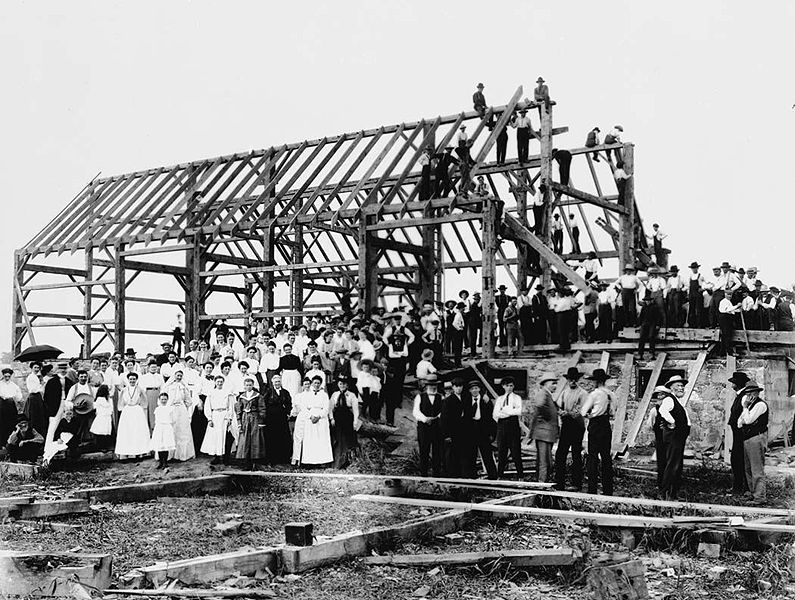Activism | Effective Living | Relationships
 Summary. The tradition of having a Barn Raising is best known as being practiced among Amish communities, but the concept is found in various cultures and languages (Finnish, Norwegian, and Cherokee). Cooperative work is a form of social activism, and relationship building. It often serves as the most effective way to accomplish a goal.
Summary. The tradition of having a Barn Raising is best known as being practiced among Amish communities, but the concept is found in various cultures and languages (Finnish, Norwegian, and Cherokee). Cooperative work is a form of social activism, and relationship building. It often serves as the most effective way to accomplish a goal.
Examples. Here are some modern day examples similar to the Barn Raising:
- Crisis or Disaster. In preparing for, responding to, and recovering from a crisis or disaster, people often will unite and come together in a shared goal of addressing a mutual threat.
- Illness. During a time of illness, friends and family often provide support to someone who is not well.
- War. Military conflict is a kind of self sacrifice that unites large numbers of people for a higher cause.
A Better Modern-Day Barn Raising. The above examples are similar to a barn raising. However a traditional barn raising was not directly self serving, nor was it in reaction to a crisis. The traditional barn raising was to help someone in the community, and it was done in a proactive way rather than reacting. Below are some contemporary examples that more closely resemble the intent of the traditional barn raising. Please contact us with other examples.
- BackyardAbundance.com – The local group, Backyard Abundance hosts occasional cooperative working events where friends gather to help one member of the group take their permaculture and gardening to the next level. It’s a truly inspiring initiative.
- SmallLivingJournal.com – The Small Living Journal is an excellent example of how the barn raising spirit is being revived and redefined for the digital age. When Stephanie Reiley first conceived of having an online place for writers to share their experiences about smaller, simpler living, she needed help from many friends to get the idea and website launched. It was a project that required the initial labor of many people. So, a group of friends came together to help build and launch the site. These friends weren’t paid, nor did they have an imediate self-interest in the site, other than enjoying the opportunity to participate by contributing writings.
Start Your Own Barn Raising Group. It’s easy to start a barn raising group with friends and family. Simply connect a group of people using email or a commonly used social networking site such as Facebook. Here are some ideas and suggestions on how to make your barn raising group a success:
- Community Outreach. Perhaps once a year, the barn raising group could donate labor, food, clothing, and money to a local cause or need.
- Financial Support. It might be helpful to combine some amount of financial support to help with a project. For example, if someone really wants to start a home-based business (that the group feels would be viable), then consider having 10 people donate $50 each to purchase a computer for the person. In order to retain the spirit and function of the traditional barn raising, some element of group collaborative volunteerism should be included. Perhaps if donations are raised, then fewer volunteer hours would be contributed.
- Project Selection. It’s a good idea to choose a project that will help the individual or family rise to a new level of productivity, freedom, savings, or income in their life. If possible, consider projects that will have lasting results. Alternatively, a project might be to offer snow removal during the winter months for an elderly member of the group.
- Rotation. Each month (or weekly dependig on the size and goals of the group), a different member (or family) of the group will be the recipient of the support of the entire group.
- Skills. Each person has skills and experience they can offer back to the group. If a person is trying to launch a business, members of the group can help with various aspects of the launch such as website creation, publicity, or perhaps helping to organize a home office.